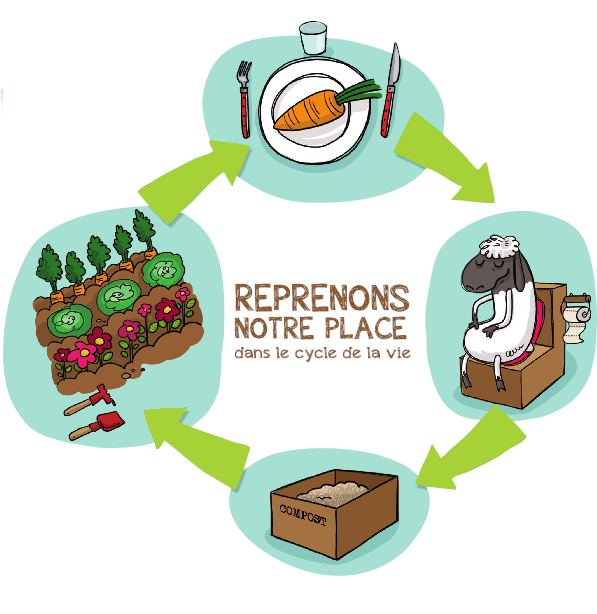Established on April 22, 1970, Earth Day is more relevant than ever.
Questions about the environment and pollution are on the rise.

Our Earth is getting poorer…
Global warming is a reality.
The factors involved are greenhouse gas emissions and general pollution.
All these are the consequences of our unreasonable consumption of fossil fuels.
For decades, man has been exploiting the soil, taking its most precious resources and giving nothing back. Fossil fuels, wood and minerals are exploited, as is intensive agriculture, which exploits our planet’s creative potential to the point of exhaustion.
Our planet’s soil is a living organism. It is made up of various mineral and organic elements. Different forms of life live side by side, enabling the soil to perform a variety of essential functions:
- regulate the climate
- flood control
- carbon storage/sequestration
- supply food, fiber and fuel
- supply building materials
- a habitat for numerous organisms
- purify water and reduce soil contamination
Yes, our planet has superpowers! But overexploitation leads to soil impoverishment, erosion and desertification, making them even less usable.
It’s a vicious circle in which the earth and mankind are the losers.
…but we can feed it
Solutions have been found in response.
Intensive farming must give way to a more natural form of agriculture, combining various types of more responsible farming (such as organic farming or permaculture), reduced use of chemicals and the supply of real nutrients to the soil.
Nourishing the soil is very important and can be done in many different ways.
Some farmers have developed techniques for reclaiming the soil through conservation agriculture.
They will let the cattle graze on a soil on which they have planted various plants with the aim of enriching the soil with their presence and serving as dinner for the cattle.
Cattle will graze on the plants present and trample the soil, which will have a light aeration effect on the land. It will mainly defecate on the plot, which will produce a natural fertilizer. These actions, combined with a period of rest, nourish the Earth.
What’s more, this technique means that the soil is not left bare, thus promoting the absorption of carbon by the soil. Our soils have this fabulous capacity to store carbon, a very interesting solution from an ecological point of view.
Other techniques used by more and more responsible farmers include direct seeding, rotating green manure crops and adding RCW and compost to the soil.
Everyone can do their bit
Soil reclamation can be achieved on a daily basis in the garden by creating compost. Compost will naturally nourish the earth. The more diverse, the better!
Lécopot gives you the chance to take responsibility for soil degradation* and feed the Earth yourself!
By using a dry toilet, you’ll be able to
compost your dejecta
and close the loop of the food cycle. No more wasting rich materials, we give back to the earth what it gives us, for a fair virtuous circle.

Natural materials cycle
If you would like to make your own
manure
(human manure), you’ll find a wealth of information in his
books
!
Mother Earth is precious, and we can all do something about it. This April 22, World Mother Earth Day, is an ideal time to reflect on our relationship with the planet that shelters, protects and nourishes us. But what do we give him in return?
All is not lost, awareness is awakening and action is multiplying, whether at state, local or even individual level.
Love your floors!
“If each of us does the little we can with conviction and responsibility, I assure you we will achieve a great deal.”
Pierre Rabhi
Sources :
https://www.statistiques.developpement-durable.gouv.fr/edition-numerique/chiffres-cles-du-climat/
https://www.youtube.com/watch?v=jsTNuAQ_wMQ
http://agriculture-de-conservation.com/Kiss-the-Ground-3191.html
https://agriculture.gouv.fr/infographie-le-4-pour-1000
* aggradation: term used by Lydia and Claude Bourguignon to evoke the reverse phenomenon of soil degradation. Our objective today is not to degrade the soil, but to make it worse.
